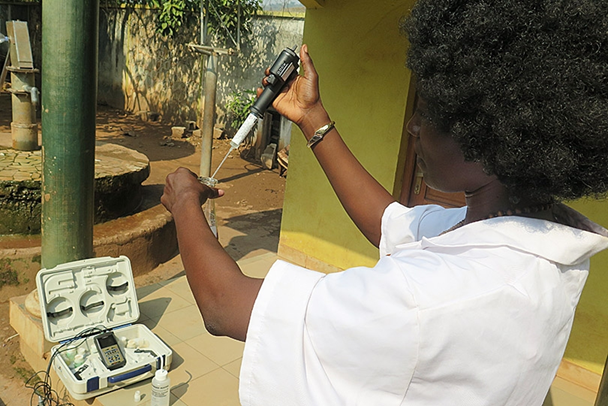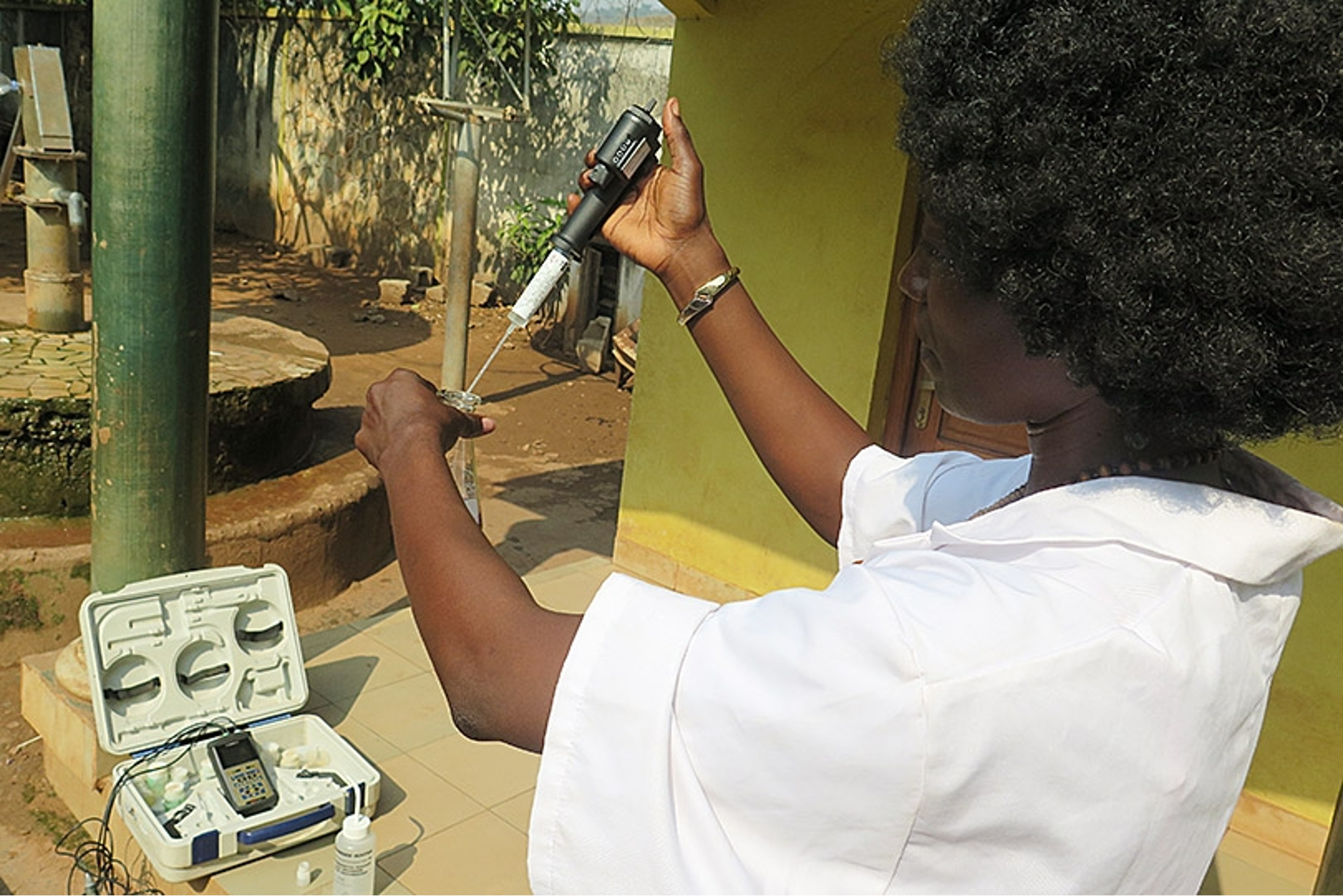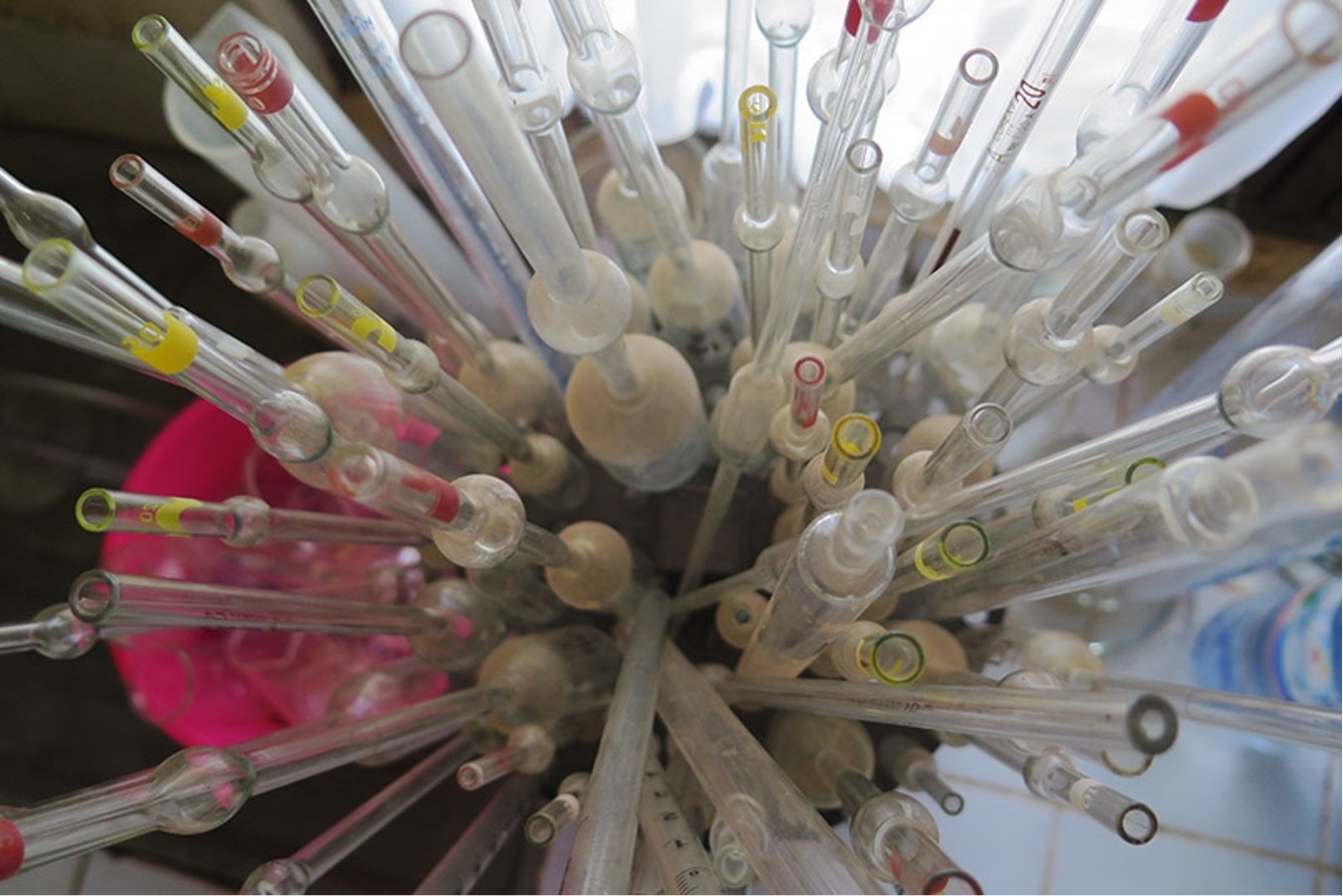 Management of Shared Water Resources in the Sahel Region
Adding the groundwater dimension to transboundary water management to enhance decision-making
Management of Shared Water Resources in the Sahel Region
Adding the groundwater dimension to transboundary water management to enhance decision-making

Challenges
Reliable access to clean water for drinking, agriculture and sanitation is one of the biggest challenges facing the 135 million people who live in the semi-arid Sahel region. Despite a series of droughts and consistently low rainfall over the past few decades, the Sahel is home to rich bodies of water — hidden underground.
Population growth, climate change and land use are putting pressure on water resources and raise the question of how to ensure the safety and sufficiency of water for food production and human use. While groundwater supplies have the potential to offer long-term access to clean water, the right scientific tools are needed to understand more about this resource.
Towards a Solution
The International Atomic Energy Agency (IAEA) technical cooperation project “Adding the Groundwater Dimension to the Understanding and Management of Shared Water Resources in the Sahel Region,” which began in 2012, trained scientists from 13 Sahel countries (Algeria, Benin, Burkina Faso, Cameroon, the Central African Republic, Chad, Ghana, Mali, Mauritania, Niger, Nigeria, Senegal and Togo) on water sampling for isotope analysis in order to carry out a detailed survey of groundwater supplies.
The area studied included parts of five major transboundary aquifer systems in the Sahel: the Iullemeden Aquifer System, the Liptako-Gourma-Upper Volta System, the Senegalo-Mauritanian Basin, the Lake Chad Basin and the Taoudeni Basin. Over 2,000 water samples have been collected from different aquifers over an eight-year period during both the dry and humid seasons. These research activities led to the creation of the first broad overview of groundwater in the Sahel, covering an area of five million square kilometres. Following extensive training in water sampling and analysis focused on isotopic techniques, the scientists applied their new skills to interpret data and develop national reports. The science-based reports were made available to national water authorities, enabling better decision-making in the water sector.
The project supported a comprehensive approach to integrated sustainable groundwater management. By building sustainable capacities in water sampling and isotope hydrology, the IAEA enabled Sahel countries to study the features of the main aquifers and the interaction between water bodies, to assess the vulnerability of groundwater to pollution and understand the impact of climate change on water availability.
The project has recently reported the first characterization of deep aquifers and the degree of interconnection with shallow aquifer units. It has also been possible to develop a tritium distribution map of the Sahel region to indicate areas with more favourable groundwater replenishment rates, but also of higher vulnerability to water pollution. The map was shared with the United Nations High Commissioner for Refugees (UNHCR) as an input to modelling future conflict areas in the Sahel.
The project is currently supporting 15 PhD students and one postdoctoral fellow to interpret the data generated and to provide greater scientific insight into the results obtained thus far. A new group of 10 PhDs, 5 MScs and 2 postdoctoral fellows has just been approved. This strategy represents a significant investment in human resources required for sustaining the utilization of isotope hydrology in characterizing and monitoring groundwater.
The project was implemented in cooperation with the United Nations Educational, Scientific and Cultural Organization (UNESCO), relevant river basin authorities (the Niger Basin Authority, the Lake Chad Basin Commission, the Volta Basin Authority, the Liptako-Gourma Integrated Development Authority and the Organization for the Development of the Senegal River), and the German Federal Institute for Geosciences and Natural Resources. The project was supported by Japan, New Zealand, the Republic of Korea, Sweden, and the United States.
The project provided a platform for effective South-South collaboration on technical and management issues at both the basin and subregional levels. It resulted in the first‑ever comprehensive overview of groundwater characteristics in the Sahel region. The data provided valuable information for the countries, including on the origin, recharge sources and flow patterns of the aquifers and on contamination levels in the basins. This information, gathered in a collaborative manner, supported evidence-based decision-making by policymakers on shared water resource management. Water resource management capacities in the region were enhanced, and an active and engaged network of local counterparts was established.
The project has entered a third phase scheduled to be implemented from 2022 to 2025 to further integrate the management of groundwater resources in the Sahel countries. This builds on the two previous projects which ran from 2012 to 2017 and 2018 to 2021. The third phase is expanding the good practices learned in the Sahel to a group of countries in the south of the continent who will investigate selected shared water resources. The project is making use of theIAEA Water Availability Enhancement (IWAVE) methodology. IWAVE methodology consists of gap analysis and stakeholder consultation, the development of an optimal strategy for groundwater management and the identification of essential technical capacities in which to invest. The technical and management capabilities resulting from this follow-up project are expected to provide core leadership and expertise for the sustainable management of shared water resources in the Sahel and contribute to the achievement by the project countries o(access to water and sanitation) plans and targets.
This initiative’s adoption of South-South cooperation mechanisms and modalities not only built capacities at national and regional levels, but created a network that can provide constant support and assistance, fostering sustainability of results.
Contact Information
Countries involved
Supported by
Implementing Entities
Project Status
Project Period
URL of the practice
Primary SDG
Primary SDG Targets
Similar Solutions
| NAME OF SOLUTION | Countries | SDG | Project Status | |
|---|---|---|---|---|
Accelerating the Implementation of African Union Treaties in São Tomé and Príncipe South-South learning from the Beninese judicial system’s experience in the application of human rights treaties to its national law |
Algeria, Benin, Burkina Faso, Cameroon, Central African Republic, Chad, Ghana, Mali, Mauritania, Niger, Nigeria, Senegal, Togo | 05 - Gender Equality | Completed | View Details |
Accelerator Labs Network Following collective intelligence methods to address emerging sustainability challenges and the growing demand for local solutions |
Algeria, Benin, Burkina Faso, Cameroon, Central African Republic, Chad, Ghana, Mali, Mauritania, Niger, Nigeria, Senegal, Togo | 08 - Decent Work and Economic Growth 13 - Climate Action | Ongoing | View Details |
Action Plan on Gender Equality and the Empowerment of Women at the National Level in the Arab Region Mainstreaming gender action within national institutions in the Arab region |
Algeria, Benin, Burkina Faso, Cameroon, Central African Republic, Chad, Ghana, Mali, Mauritania, Niger, Nigeria, Senegal, Togo | 05 - Gender Equality | Completed | View Details |
Addressing Racial and Ethnicity-based Discrimination and Strengthening the Protection of Rural Afro-descendants UNFPA supports data disaggregation as a tool to fight racism and ethnic discrimination |
Algeria, Benin, Burkina Faso, Cameroon, Central African Republic, Chad, Ghana, Mali, Mauritania, Niger, Nigeria, Senegal, Togo | 01 - No Poverty 02 - Zero Hunger 03 - Good Health and Well-being 05 - Gender Equality 06 - Clean Water and Sanitation 11 - Sustainable Cities and Communities 16 - Peace and Justice Strong Institutions | Ongoing | View Details |
Africa Kaizen Initiative Japanese management approach of continuous improvement to enhance quality and productivity |
Algeria, Benin, Burkina Faso, Cameroon, Central African Republic, Chad, Ghana, Mali, Mauritania, Niger, Nigeria, Senegal, Togo | 08 - Decent Work and Economic Growth | Ongoing | View Details |


